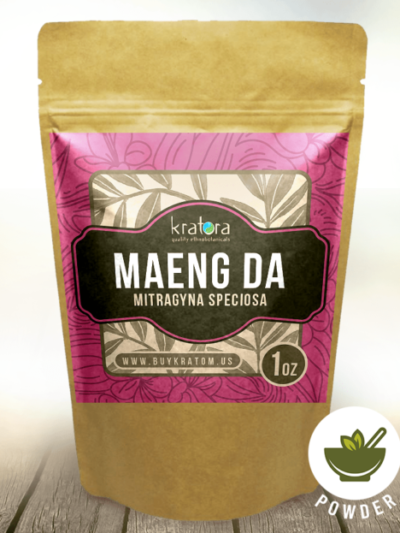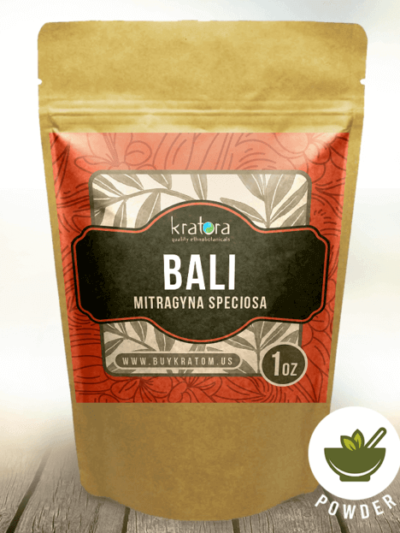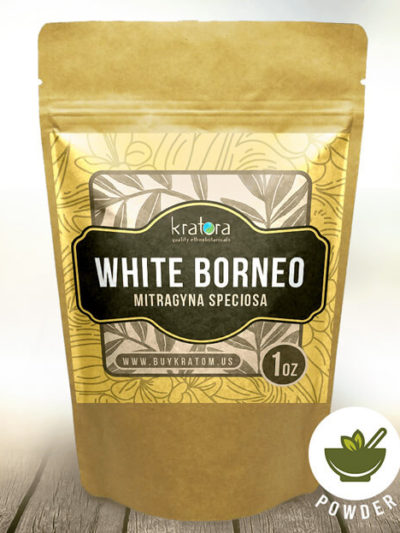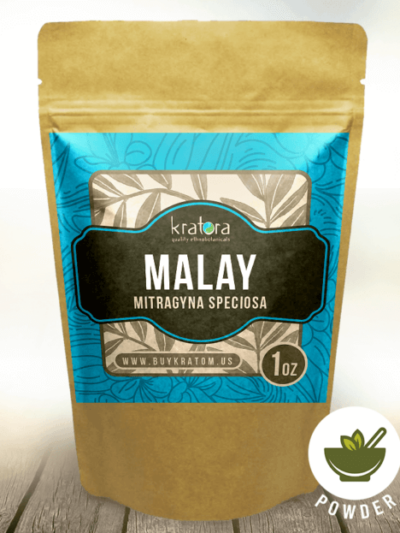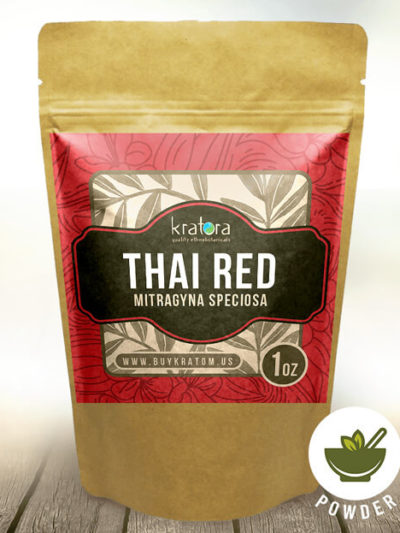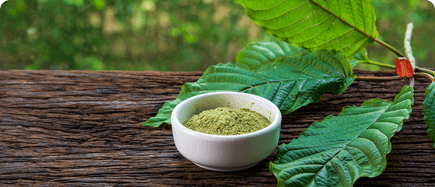Kratom — the ground leaves of the mitragyna speciosa plant — has been coveted by various Southeast Asian populations for centuries. However, kratom has only recently gained recognition in the United States and abroad, where a whirlwind of misinformation has accompanied its arrival.Thankfully, by performing various kratom studies, researchers are gradually uncovering the truth behind kratom’s risks and benefits. And, as many of today’s kratom research studies seem to suggest, the future of this timeless botanical is brighter than ever.
Kratom Studies on Kratom’s Impact on Cognitive Ability
As with many substances, some people are concerned that kratom use will negatively affect or alter their cognitive abilities. However, at present, most kratom studies focus on the function of kratom’s alkaloids and their potential uses rather than the consequences of consumption.
Fortunately, in late 2018, Singh et al. conducted a kratom research study that provided some much-needed transparency regarding kratom’s influence on cognition. In their study, the authors asked 70 regular kratom users and 25 control participants to perform six tasks that gauged their motor skills, learning, memory, attention, and executive function.
The results found that kratom users scored comparably to the control group in four of the five cognitive tests. However, the same kratom study also found that those who used more than 72.5-74.9 mg of mitragynine had poorer performance on the learning task, indicating deficits in visual memory and new learning.
Thankfully, the author’s findings suggest that light-to-medium kratom use doesn’t appear to impair cognitive ability in any noticeable manner. However, the kratom study’s results do imply that using kratom in higher amounts may adversely affect one’s capacity for learning.
Kratom Studies on Kratom’s Effect on Hormone Levels
Another common source of concern for people who are interested in kratom is the plant’s purported influence on hormone levels and hormonal balance. Because the use of substances that are similar to kratom is often associated with decreased testosterone levels, some people are concerned that kratom use will carry comparable consequences.
In 2018, Singh et al. set out to determine the impact of kratom use on hormones, specifically testosterone. To determine the answer, the authors built their kratom study around 19 regular kratom users who had been using kratom for over two years, every day.
The authors conducted blood tests on the participants and analyzed their testosterone levels, follicle stimulating hormone (FSH) and luteinizing hormone (LH), as well as their hematological and biochemical profiles. According to the results of the kratom research study, all of the blood factors of the participants, including testosterone, were unaffected by kratom use.
Although the findings of this kratom research study are promising, it should be noted that the authors used a relatively small sample size of only 19 participants. In addition, the study doesn’t describe how frequently blood testing occurred, which may have skewed the accuracy of the results. As always, more kratom studies will help clarify how the plant affects hormonal health, if at all.
Motives for Kratom Use in Malaysia
Despite the fact that historical accounts of kratom date back hundreds of years, kratom has only recently gained popularity among US consumers. However, the plant has a long history of use and widespread cultural prominence in its Southeast Asian regions of origin.
Perhaps in the interest of cross-cultural comparison, the authors of this kratom study surveyed 116 Malaysian kratom users living in rural environments to investigate why they used kratom. The authors used the “Drinking Motives Questionnaire” (DMQ) to survey participants, which defines the motives for consumption as follows:
- Social — consuming a substance in the interest of socializing
- Coping — consuming a substance to forget one’s problems
- Enhancement — consuming a substance for pleasure
- Pressure and Conformity — consuming a substance to fit in with others
After assessing the responses of their surveyees, the authors found that those who used more than three glasses of kratom daily most frequently reported coping and enhancement as their motives. The same kratom study also found that more single responders used kratom for coping in comparison to married users.
The kratom research study also considered the socio-economic status of its survey participants. Those who earned more than 1500 in MalaysianRringgit (about $360 USD) a month professed to use kratom as an “enhancer” more often than responders who made less than RM1500 a month.
Although extrapolating the study’s results to the US might be inaccurate, the results might help inform the perspectives of federal organizations like the DEA and FDA who are working to understand the motives for kratom use within their own country.
-
Sale!
Top Seller
Maeng Da Kratom Powder
From $14.99 Shop NowQuick View -
Sale!
Best Seller
Premium Commercial Bali Kratom Powder
From $9.74 Shop NowQuick View -
Sale!
Best Seller
White Vein Borneo Kratom
From $8.99 Shop NowQuick View -
Sale!
Best Seller
Green Malay Kratom Powder
From $9.74 Shop NowQuick View -
Best Seller
Thai Red Vein Kratom
From $14.99 Shop NowQuick View
Kratom Use and Mental Health
Another kratom study, entitled Kratom Use and Mental Health: A Systematic Review, was published in 2018 and sought to explore kratom’s potential utility in the field of mental health. To reach a consensus, the authors of this kratom research study reviewed all the available scientific literature that had been published between January 1960 and July 2017 instead of conducting a novel experiment.
Based on their findings, the authors — Swogger and Walsh — stated that kratom’s mood-enhancing and anxiety-relieving properties might make it a potentially useful harm reduction tool. They also noted that the plant’s withdrawal symptoms were “mild” in comparison to similar substances.
At a time when kratom’s risks and benefits in the mental health space aren’t fully understood, the broad-stroked analysis of kratom studies like Kratom Use and Mental Health: A Systematic Review could be invaluable and illuminating for clinicians, legislators, and researchers alike.
7-Hydroxymitragynine: Kratom’s Other Major Alkaloid
For decades, most kratom research studies focused on the mitragynine alkaloid — an organic compound found in kratom leaves that’s often considered to be the primary driver of kratom’s psychoactive effects. Recent studies, however, suggest that the role of another kratom alkaloid, called 7-hydroxymitragynine (7-HMG), might be equally significant.
In February 2019, Kruegel et al. published a kratom study that expanded on 7-HMG’s prominence. The authors discovered that not only is mitragynine content converted to 7-HMG by the liver, but that 7-HMG is much more potent by comparison. Their findings in this kratom research study also challenged the prevailing narrative that mitragynine is the central catalyst of kratom’s pain-relieving properties, with the authors asserting that 7-HMG might be more responsible instead.
Upon performing rodent trials, Kruegel et al. also noted that 7-HMG appeared to behave as a potentiator for mitragynine. The authors stated that a “greater or lesser conversion (relative to mice) of mitragynine to 7-OH in a given species would be expected to increase or decrease, respectively, [mitragynine’s potency] in that species.”
In the same kratom study, Kruegel et al. observed another function of the synergistic relationship between mitragynine and 7-hydroxymitragynine. The authors found that when mitragynine was converted to 7-HMG, the conversion effectively created a “ceiling” for kratom’s pain-relieving properties, preventing the potency from exceeding a certain limit. The authors noted that by preventing users from reaching otherwise dangerous effects thresholds, this function could increase the safety of kratom, especially in comparison to similar substances.
In the concluding statement of their kratom study, Kruegel et al. affirmed the importance of continued research, stating that “mitragynine and related compounds have great potential as future therapeutics, but metabolic processes must be carefully considered as the field continues to advance.”
Choose Quality Kratom from the World’s Best Sources
Despite kratom’s deep roots in the history of the world, scientists are just beginning to understand the risks, benefits, and potential uses of this timeless botanical.
However, as the landscape of kratom research studies continues to expand and evolve, one truth will always remain unchallenged: not all kratom is created equally. By purchasing kratom from a reliable source, you can ensure that your experience is a safe and positive one.
At Kratora, we’ve been supplying high-quality kratom products online to customers around the world since 2013. We’re proud to offer:
- A diverse range of organic, all-natural kratom strains and kratom alternatives
- Freshly sourced and securely packaged products
- Premium kratom extracts for sale
When you shop with us, your satisfaction is our highest priority. Whether you’re a new customer or a loyal fan, we’re thrilled to offer:
- Speedy shipping at fair prices
- Friendly and responsive customer service
- A full-fledged loyalty rewards program
- A 30-day full refund guarantee
- Free priority shipping on domestic (USA) orders over $75
Shop with us today to receive same-day shipping on orders submitted before 3 PM EST Monday through Friday and 1 PM EST on Saturdays (excluding holidays).
Please note that none of the products sold on our website are intended to diagnose, treat, cure, or prevent any disease or medical condition.
Please note that the US FDA has not approved kratom to be sold for human consumption, sold for external use only. None of the products sold on our website are intended to diagnose, treat, cure, or prevent any disease or medical condition.
Want to learn more about kratom quality and value? Start here:
Why Buying Cheap Kratom Can Be Dangerous


